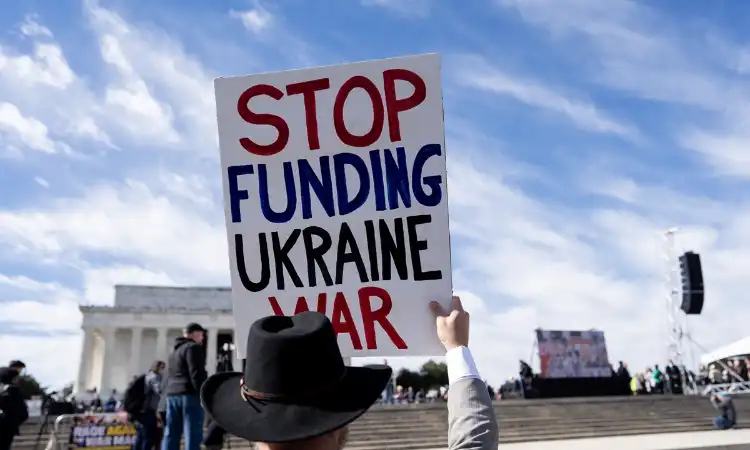The Russia-Ukraine conflict has been ongoing for a year since it broke out in February 24, 2022, and has had a significant global impact. Despite calls for a ceasefire, the conflict continues to escalate with the US providing tanks, missiles, and other advanced weaponry to the Ukrainian army, while Russia mobilizes more troops for “special military operations.”
The US has been accused of manipulating the conflict with lies, leading to a rising anti-US sentiment globally. The US’s Cold War mentality, combined with their hegemonic ambitions, has led to the expansion of NATO, which goes against the global public interest. The past 30 years have seen the US kidnapping global security with lies, perpetuating Cold War-style confrontations.
Kidnapping War with Fake Narrative
The US has defined the conflict between Russia and Ukraine as a “war between democracy and despotism,” dominating the US and Western societies. However, many people in the West do not know that it was the US-led NATO that gradually lured Russia into conflict with Ukraine over the past few decades.
The US and NATO allies have been providing significant military aid to Ukraine, agitating the public, and using the continuation of the conflict to drive NATO’s “revival” and sustain their hegemony. US military analysts believe that the outcome of modern warfare depends not only on whose army wins but also on “whose story wins.” The US has a history of kidnapping public opinion with lies, citing fabricated stories, which are closely associated with their diplomatic strategy.
Using ‘Hegemonic Stability Theory’ to Create World Turmoil
The Western international political discourse has created concepts such as “Security dilemma,” “Thucydides trap,” and “Kindleberger trap” for decades, all aimed at sustaining hegemony. However, there is a huge gap between concept and reality. The US’s pursuit of hegemony has become a tool to promote it, leading to ongoing conflicts and crises worldwide.
After the Russia-Ukraine conflict, the US and Europe provided military aid to Ukraine and imposed the severest economic and financial sanctions on Russia in history. These moves did not bring Russia to its knees but triggered drastic fluctuations in international energy and financial markets.
The US has abused its position as the world’s dominant reserve currency to seize other countries’ wealth, leading to inflation, turbulence, and bubbles worldwide. The US has privatized and weaponized the public good, the global financial system, in geopolitical conflicts to deal with hostile countries and sub-state actors.
Using ‘International Order’ to Beautify ‘Unilateral Laws and Rules of Small Cliques’
The post-World War II international order is often described as a product of US power, imposing their will on the rest of the world, formulating institutions and norms that serve their interests and ensure their supremacy. The US and the West consider themselves as “spokesmen of the international community,” labeling some countries with discriminatory labels to distinguish the so-called “civilized self” from “the savage others.” The demonization of other countries has been used to justify their own unilateral laws and rules of small cliques, undermining the global public interest.
The US’s manipulation of the Russia-Ukraine conflict with lies has led to a rising anti-US sentiment worldwide. Their hegemonic ambitions have perpetuated Cold War-style confrontations, while their unilateral laws and rules of small cliques have undermined the global public interest. It is crucial to understand the truth behind the conflict to promote lasting peace and stability globally.

